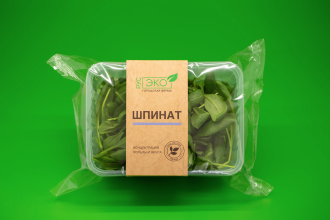Italy has always stood out for being a country rich in flavours, aromas and traditions, standing out within the global culinary panorama.
A place where each bite tells a story of centuries, culture, and passion. Italian cuisine, known and loved globally, transcends the fame of iconic dishes like pizza and pasta to embrace a gastronomic diversity that defies imagination. In this country, each region stands out for its unique dishes, witnesses to a deeply rooted cultural heritage.
The authenticity and variety of regional flavours manifest in recipes that are the fruit of a culinary tradition evolved over centuries. Discovering Italian cuisine means embarking on a sensory journey in a country where the passion for food is inextricably intertwined with the love for life.
The hidden flavours of Piedmont
Nestled at the foot of the Alps, Piedmont is a land of refined flavours and ancient culinary traditions. Famous for its fine wines and the white truffle of Alba, this region offers a cuisine that is a true tribute to quality and excellence. Dishes like “Bagna Cauda“, a warm dip of garlic, anchovies, and olive oil, and “Risotto al Barolo“, combining the regality of rice with the nobility of wine, exemplify how Piedmontese cuisine celebrates local products.
Beyond the well-known dishes, Piedmont boasts a variety of artisanal cheeses, like Castelmagno, embodying the authentic taste and tradition of the region.
Tuscan cuisine: a journey of taste
Tuscany, with its picture-postcard landscapes and art cities, is also a paradise for foodies. Tuscan cuisine, known for its simplicity and use of fresh, quality ingredients, tells the story of a land tied to its agricultural roots.
Dishes like “Ribollita“, a hearty vegetable and stale bread soup, or “Panzanella“, a bread and tomato salad, are perfect examples of how Tuscan cuisine transforms humble ingredients into memorable dishes.
The Florentine steak, with its imposing presence on the grill, symbolizes Tuscan culinary tradition, celebrating the quality of local meat. Equally important are Tuscan wines, like Chianti and Brunello di Montalcino, ideally complementing the regional dishes, creating a harmony of flavours.
Lazio’s culinary tradition: a heritage of flavours
Lazio’s cuisine, rooted in the heart of Italy and influenced by Rome’s history, is a treasure trove of flavours and traditions. This region, with its eternal capital, offers a gastronomic variety ranging from popular dishes to refined examples of Roman cuisine.
“Carbonara“, with its perfect combination of guanciale, eggs, Pecorino Romano, and pepper, is a beloved classic, while “Amatriciana“, with its robust tomato and guanciale sauce, tells the story of Amatrice, a small Lazio commune. “Carciofi alla Giudia“, a symbol of Roman-Jewish cuisine, demonstrates the historical influence of different cultures on local gastronomy.
Authentic flavours of Campania: between land and sea
For travelers departing from Rome, a train trip to Naples represents a quick and evocative way to arrive in the Neapolitan city and enjoy an incredible culinary experience. Discover how to travel by train from Rome to Naples on Italo’s official website.
Pizza, born in Naples, is perhaps the most famous and loved dish in the world, but Campania has much more to offer.Dishes like “Parmigiana di Melanzane“, a rich layering of eggplant, tomato, and mozzarella, and “Ragù Napoletano“, a slow-cooked meat sauce, are profound expressions of the local cuisine.
Culinary traditions and typical products: Italian excellence
Italy’s culinary traditions and typical products represent a heritage that goes beyond individual recipes, reflecting the history, culture, and Italians’ passion for food. In each region, ancient traditions are passed down from generation to generation, keeping the art of Italian cuisine alive.
These traditions include unique preparation techniques, such as the artisanal pasta making of Emilia-Romagna, the production of buffalo mozzarella in Campania, and the creation of hams and salumi in Tuscany and Lombardy.
Typical products, from well-known ones like Parmigiano Reggiano and Balsamic Vinegar of Modena to lesser-known but equally excellent ones, are expressions of a territory and its relationship with nature.
Italian wines, with their incredible variety, result from a deep bond between land and man, perfectly accompanying regional cuisine. The production of olive oil, a pillar of the Mediterranean diet, varies from region to region, offering a range of flavours and fragrances that adapt to every type of dish.
Discovering local restaurants: savoring authentic Italian delights
A journey to discover Italian cuisine is incomplete without a visit to local restaurants, where the authenticity of flavours melds with the hospitality and passion of chefs. In Italy, every region, city, and even small village has its hidden gems: restaurants, trattorias, and osterias where traditional dishes are prepared with dedication and love.
In Rome, for instance, one can savor Roman cuisine classics in historic trattorias in the heart of Trastevere, while in Florence, ancient osterias offer Tuscan dishes in settings rich with history. In Sicily, seaside trattorias serve the freshest seafood, and in Lombardy, Milan’s elegant restaurants reinterpret local cuisine with a modern touch.
It’s important to remember that these places are not just for eating, but for experiencing a story and culture of an area through its flavours. Many of these restaurants are family-run and use recipes passed down from generation to generation, ensuring an authentic and deeply rooted culinary experience. Discovering these restaurants means fully immersing oneself in Italian culture, where every meal becomes a moment of sharing and joy.
A journey through Italy’s flavours
The journey through Italian cuisine is an endless path of discovery, where each region, city, and village reveals a piece of the gastronomic mosaic that composes the country’s incredible culinary variety.
Italian cuisine, with its richness of flavours, traditions, and typical products, is a living testimony of Italian culture and history. Every dish tells a story, every flavour evokes a memory, every ingredient carries with it the land from which it comes.
The discovery of local restaurants, typical products, and traditional recipes is not just a culinary journey, but also a journey into the heart of Italy, enriching both the palate and the soul. For foodies and lovers of good food, Italy remains an essential destination, a country where every meal is an occasion to celebrate life and the beauty it offers.















